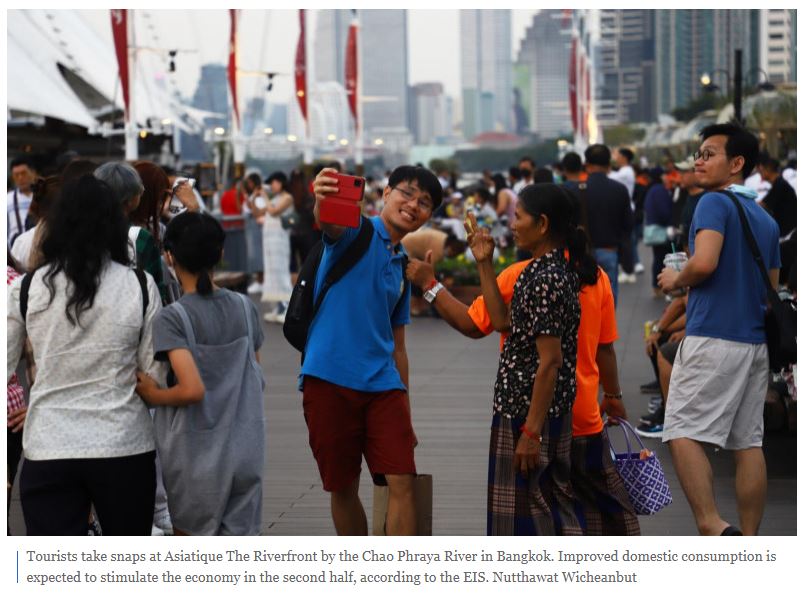Thailand: EIS optimistic on economic prospects in H2
The Economic Intelligence Service (EIS), a research arm of the Thailand Development Research Institute (TDRI), forecasts a better second half for the Thai economy, driven by increased tourism and domestic consumption, although the political instability would need to be monitored.
The EIS predicts Chinese arrivals to Thailand will increase by 3-4 times the level recorded in 2022, rising to 5-6 million this year. Some 10 million Chinese visitors arrived in 2019.
Improved domestic consumption should stimulate the Thai economy in the second half, said EIS director Kirida Bhaopichitr.
While Thai exports have benefited from China’s reopening, the EIS expects total shipments would shrink this year given the risk of a global economic downturn and uncertainty in the formation of a new government, Ms Kirida said during a joint TDRI and Krungthai Card Public Co (KTC) media briefing held on Monday on the economy and consumer finance business in the second half of 2023.
“Politics is another domestic risk factor which may dampen investors’ confidence as the formation of a new government escalates,” she said. “The political instability may delay the fiscal 2024 budget disbursement, thus affecting government spending in the fourth quarter of 2023.”
Under this scenario, the EIS predicts the economy to grow 3.5% in 2023, primarily fuelled by the influx of international arrivals and private consumption. According to forecasts made by the Bank of Thailand, international arrivals are expected to reach 30 million this year and are set to increase to 35.5 million in 2024.
She said the Bank of Thailand would continue to hike its policy rate in a bid to curb inflation. The EIS anticipates that the central bank would increase its policy rate by 0.75 percentage points, targeting a range of 2.25% to 2.5% by the end of this year, from the current level of 2%.
In addition, the consumer confidence index in April this year rose for an 11th straight month, reaching the highest level in 38 months. This is a result of a rebound in the tourism sector which resulted in a decline in unemployment as well as income growth from increased employment in the hotel and restaurant, construction, trading, and manufacturing industries, she said.
Household consumption would likely expand moderately in line with tourist spending in hotels and restaurants, on transport, as well as in the retail and wholesale sectors.
Chutidej Chayuti, KTC’s chief financial officer, said a rise in the interest rate would not significantly affect the firm’s customers under the ceiling set for credit cards and personal loans which are two of KTC’s core businesses.
Mr Chutidej said KTC’s credit card spending is set to remain positive in the second half of this year in line with the economic recovery. It expects to achieve more than 10% growth in the card spending rate this year, with the possibility of reaching 15% growth depending on economic circumstances in the second half of the year.
Source: https://www.bangkokpost.com/business/2590494/eis-optimistic-on-economic-prospects-in-h2


 English
English




